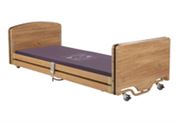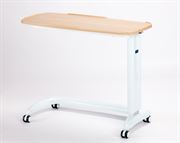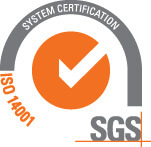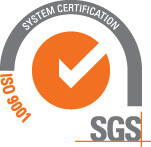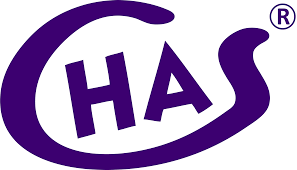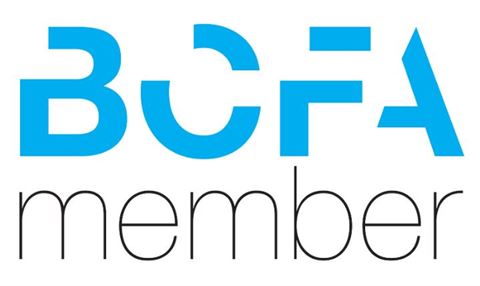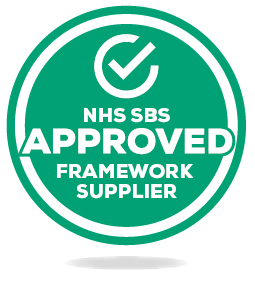Since the government announced its plans to introduce compulsory vaccination for anyone (unless exempt) entering a care home setting in June, the industry has been waiting for further details on how these rules will operate on a practical level. On 4 August, the government released guidance for care business owners, covering:
- How people can prove their vaccination status
- How owners can adequately monitor status of vaccination
- the data protection implications of asking for and recording vaccination status
- a list of those who will be exempt from compulsory vaccination
What’s changing?
From 11 November 2021, all care home workers in England, and anyone entering a care home, will need to be fully vaccinated, unless they are exempt under the regulations. This requirement will be monitored and enforced by CQC.
The rule only applies to people who go inside the care setting; therefore, anyone who is not entering the building doesn’t need to show their vaccination status.
Although checks may be carried out by other members of staff acting under the instruction of the registered person, it remains the responsibility of the registered person.
How can employees prove their vaccination status?
There are ongoing discussions on how the NHS COVID Pass service could be used by care homes and staff to check and demonstrate vaccination status but, in the meantime, the guidance sets out three ways an employee can evidence their vaccination status if they were vaccinated in England, namely:
• the NHS app
• the NHS website
• the NHS COVID Pass letter
The individual’s NHS appointment card should not be used as proof of vaccination status.
There are specific provisions for people who’ve been vaccinated in Scotland and Wales. The government is currently working on guidance for those who have been vaccinated outside the UK.
Recording vaccination and exemption status
The guidance requires the registered person to keep a record of:
• the vaccination or exemption status of staff members and the date that the status was last checked.
• the vaccination or exemption status of
those entering the care home (unless exempt) and the date that the status was last checked.
The registered persons should only record whether the individual is medically exempt or not. They should not record the clinical reason behind the exemption.
For professional visitors, the guidance states that individuals only need to demonstrate vaccination status the first time they enter or register with the care home, and at that point their vaccination status should be recorded on the care home’s system.
Data protection implications
Nothing in the new rules relieves care providers of their existing data protection responsibilities. The guidance recommends that care providers should review and update existing data protection and privacy documentation and assessments.
It’s vital you have a clear data protection policy in place that details issues such as:
• the kind of information being recorded
• how that information will be used
• where that information will be stored
• who will have access to that information
• how long that information will be stored for
Government announces temporary self- certification of medical exemption scheme
On Wednesday 15 September, the government announced a temporary scheme which allows people working and volunteering in care homes in England to temporarily self-certify that they’re medically exempt from compulsory vaccination requirements. According to the guidelines, people working or volunteering in care homes “who have a medical reason why they are unable to have a COVID-19 vaccine”
would be able to self-certify that they meet the medical exemption criteria.
The temporary self-certification is due to expire 12 weeks after the launch of the NHS COVID Pass System - on 23 December 2021. A letter announcing the scheme was sent to all care home providers and managers, and provided a (non-exhaustive) list of scenarios where temporary, self-certified medical exemption will be applicable for care home employees.
Who is exempt under the regulations?
The policy does not apply to residents or anyone falling within the following categories, if:
• they, for clinical reasons, should not be vaccinated (the individual is exempt for medical reasons)
• it’s necessary for the person to provide emergency assistance in the care home
• it’s necessary for the person to provide urgent maintenance assistance to the care home
• the person is a member of the emergency services performing their duties
• a person is a friend or relative of the resident visiting the resident (this also includes unpaid carers or designated essential care givers)
• the person is visiting a resident who is dying
• it’s necessary for the person to provide comfort or support to a resident in relation to a
resident’s bereavement following the death of a relative or friend
• the person is under the age of 18
Who qualifies for medical exemption and how can they prove their exemption?
On Friday 1 October, the government published long-awaited guidance on how individuals can evidence medical exemption from the COVID vaccination (and testing) via the NHS COVID Pass System.
The possible reasons for exemptions are limited. Examples that might be for a medical exemption are:
• People receiving end of life care where vaccination is not in the person’s best interests
• People with learning disabilities or autistic individuals, or people with a combination of impairments where vaccination cannot be provided through reasonable adjustments
• A person with severe allergies to all currently available vaccines
• Those who have had an adverse reaction to the first dose (for example, myocardium) Other medical conditions could also allow you to qualify for medical exemption.
Short-term exemptions
The guidance also confirms that short-term exemptions are available for those “with a short- term medical condition”. Pregnant individuals can chose to take up this time-limited exemption, although this will expire 16 weeks post-partum.
How does this work in practice?
An individual can apply for a NHS COVID pass medical exemption by calling 119 and asking for a NHS COVID Pass medical exemption application form, which shall be sent in the post if that individual is eligible.
The application form should be returned to the GP or clinician listed on the form and a decision on the medical exemption will be received two or three weeks after applying, with no right of appeal. If medical exemption is granted, the domestic NHS COVID pass can be used to evidence their exempt status, although the COVID pass will look and work the same as it does for those who are fully vaccinated.
Guidance for employers
The guidance advises employers to have a written vaccination policy, which could cover issues such as:
Whether staff over 18 are entitled to time off work (with or without pay) to be vaccinated or obtain evidence of medical exemption
The date by which employees will need to provide evidence of vaccination or exemption.
Any arrangements relating to leave if staff experience side effects from vaccination (the guidance suggests it may be preferable to avoid a large number of staff being vaccinated on a single day).
How data about vaccination or exemption will be processed.
How any formal policies will apply to staff who cannot comply with the requirement how vaccination requirements of new recruits and agency staff will be addressed any equality issues that arise from complying with the regulations (see section on Equality Act 2010).
Even where trade unions or employee representatives are not in place, collective consultation obligations may be triggered if there is a change to contract terms (which the introduction of compulsory vaccination would be viewed as in most cases) which could result in 20 or more dismissals at one site within a 90-day period.
How will this impact recruitment?
Care home providers should notify prospective employees of the vaccination requirement at the start of the application process and should check vaccination status during the recruitment process.
The guidance makes it clear that new recruits can only start work when they have provided evidence of their vaccination status or a medical exemption.
The rules also apply to anyone entering a care home for a job interview and therefore if someone intends to have the vaccination but is not yet vaccinated, the interview should take place outside of the care home or remotely (via video call or telephone).
We understand the challenges you have in ensuring that all your colleagues are vaccinated for Thursday 11th November 2021.
At Renray we believe in championing and offering our full support to your care home and we are pleased to confirm that all staff who will be visiting your care homes have been double vaccinated.
That is why we have put forward some guidance and advice for you, that will be helpful before the 11th.



